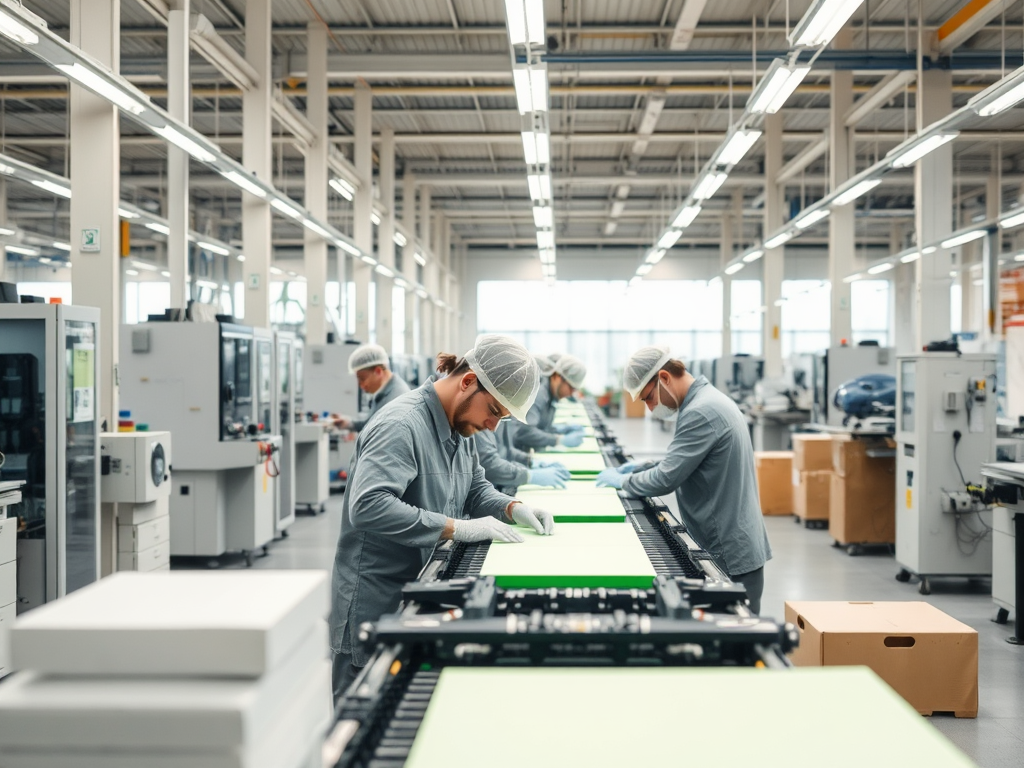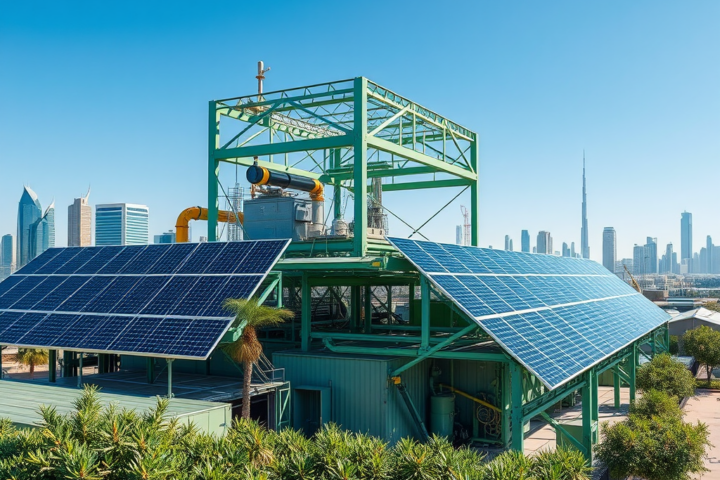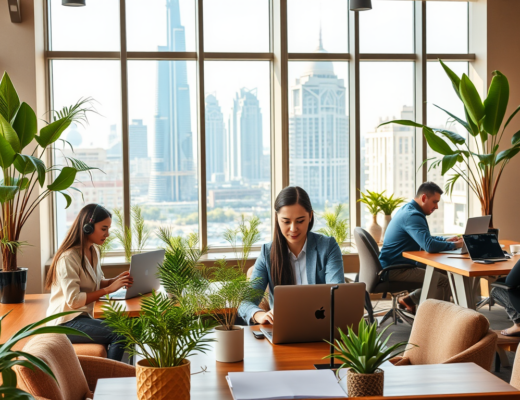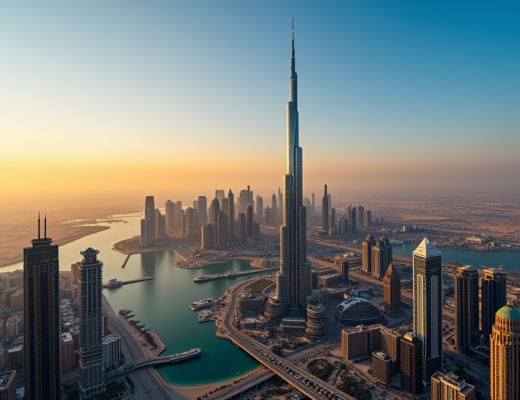Dubai is rapidly emerging as a global hub for sustainable manufacturing, driven by a commitment to innovation, environmental responsibility, and economic growth. This article explores the ongoing investment trends in Dubai’s sustainable manufacturing sector, highlighting the challenges, opportunities, and key players contributing to this transformative industrial landscape. As the emirate positions itself as a leader in sustainability, various stakeholders are channeling resources into initiatives that not only benefit the environment but also promote economic diversification.
Global Context: The Need for Sustainable Manufacturing

As the world grapples with climate change and depleting resources, sustainable manufacturing has become a pressing priority. The focus on minimizing waste, utilizing renewable resources, and reducing carbon footprints is reshaping industries across the globe. In this context, Dubai is showcasing its commitment to sustainability through multiple initiatives. Some of the global trends influencing investment strategies in sustainable manufacturing include:
- Increased Regulatory Pressures: Governments around the world are implementing stricter environmental regulations that encourage sustainable practices.
- Consumer Demand: There is a growing demand for eco-friendly products among consumers, prompting manufacturers to adopt sustainable methods.
- Technological Advancements: Automation and innovative technologies are making it easier to implement sustainable practices in manufacturing.
- Corporate Responsibility: Companies are prioritizing sustainability as part of their brand value, leading to greater investment in green technologies.
- International Collaborations: Partnerships between governments, organizations, and private sectors are facilitating advancements in sustainable manufacturing.
Investment Opportunities in Dubai’s Sustainable Manufacturing Sector

Investors are increasingly looking toward Dubai’s sustainable manufacturing sector for promising opportunities. The emirate is home to several free zones and incentives designed to attract foreign investment. Additionally, the government’s UAE Vision 2021 focuses on economic diversification, prioritizing eco-friendly practices, and encouraging industrial innovation. Key investment opportunities include:
- Renewable Energy Projects: Investments in solar, wind, and other renewable energy projects are pivotal for sustainable manufacturing.
- Waste Management Solutions: Technologies that promote recycling and waste reduction create valuable opportunities.
- Green Materials and Production Processes: The development of biodegradable materials and environmentally friendly production methods is seeing significant investments.
- Research and Development: Funding for R&D initiatives focused on sustainable manufacturing innovations is essential for growth in this sector.
- Collaborative Platforms: Initiatives that promote partnerships between businesses, researchers, and government entities to foster innovative solutions.
Technology plays a crucial role in transforming sustainable manufacturing practices. Dubai is embracing cutting-edge technologies, such as artificial intelligence (AI), the Internet of Things (IoT), and robotics, to enhance efficiency and sustainability. These technologies facilitate several advancements, including:
- Smart Manufacturing: AI-driven systems optimize processes and reduce waste.
- Supply Chain Transparency: IoT devices provide real-time data on supply chain operations, improving sustainability practices.
- Energy Efficiency: Technologies that monitor and control energy consumption help manufacturers minimize their carbon footprints.
- Automation: Robotics streamline production processes and reduce reliance on manual labor, which can be more resource-intensive.
- Data Analytics: Advanced analytics enable manufacturers to identify inefficiencies and implement solutions for sustainable operations.
Challenges Facing Sustainable Manufacturing Investments
While the investment landscape for sustainable manufacturing in Dubai is promising, various challenges exist that stakeholders must address. These challenges include a lack of awareness or understanding of sustainable practices among local businesses, high initial investment costs, and limited availability of skilled labor trained in green technologies. Furthermore, the reliance on traditional manufacturing frameworks can hinder the transition to more sustainable approaches. The main challenges can be summarized as follows:
- High Upfront Costs: Initial investment requirements can deter businesses from pivoting toward sustainable practices.
- Knowledge Gap: A lack of understanding and expertise in sustainable technologies can slow down adoption.
- Market Resistance: Established industries may resist change, preferring to adhere to traditional models.
- Regulatory Complexity: Navigating regulations related to sustainability can complicate investment decisions for companies.
- Limited Access to Funding: Smaller enterprises often struggle to secure funding for sustainable initiatives compared to larger corporations.
Conclusion
As Dubai continues to evolve as a leading destination for sustainable manufacturing, the potential for investment is vast and compelling. While challenges remain, the ongoing initiatives are paving the way for a more sustainable industrial landscape. Stakeholders are encouraged to embrace these trends by investing in innovative technologies, sustainable practices, and collaborative platforms. By capitalizing on the growing global emphasis on sustainability, investors can not only drive profits but also contribute to the emirate’s vision of a greener future.
Frequently Asked Questions
1. What are the main benefits of investing in sustainable manufacturing in Dubai?
Investing in sustainable manufacturing in Dubai offers numerous benefits, including access to a growing market, government incentives, and the opportunity to be part of the emirate’s commitment to environmental responsibility and economic diversification.
2. How can technology enhance sustainable manufacturing practices?
Technology enhances sustainable manufacturing practices through smart automation, real-time data analytics, and energy-efficient processes, allowing manufacturers to optimize operations and reduce waste.
3. What types of renewable energy projects are prominent in Dubai?
Prominent renewable energy projects in Dubai include solar farms, wind energy initiatives, and investments in innovative energy solutions that align with sustainability goals.
4. What challenges do local businesses face when adopting sustainable manufacturing practices?
Local businesses face challenges such as high upfront costs, a lack of awareness or training in sustainable technologies, and resistance from traditional industries which may impede the transition.
5. How important is collaboration in advancing sustainable manufacturing in Dubai?
Collaboration is vital for advancing sustainable manufacturing in Dubai as it fosters partnerships between businesses, government entities, and researchers, leading to innovative solutions and scalable approaches to sustainability.



